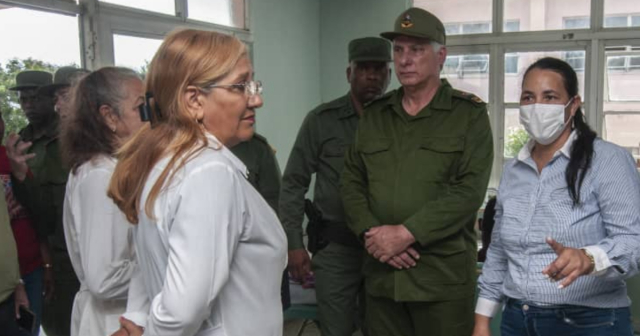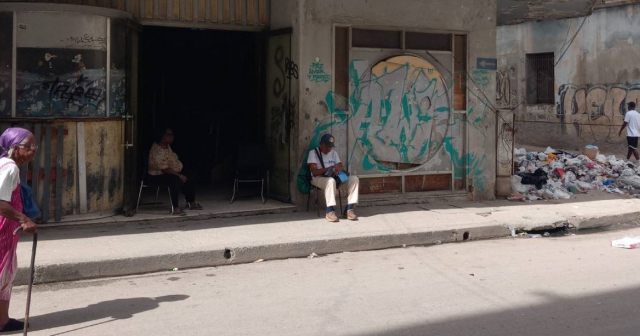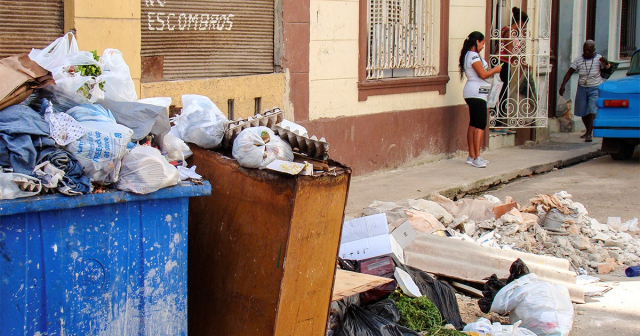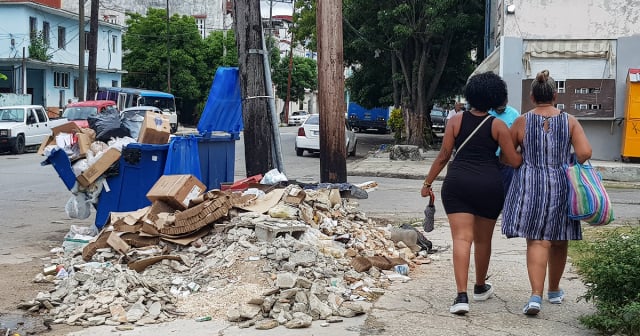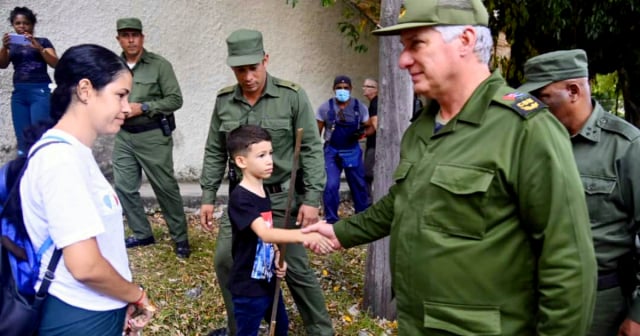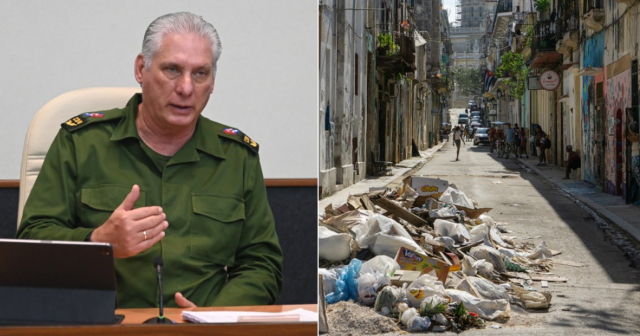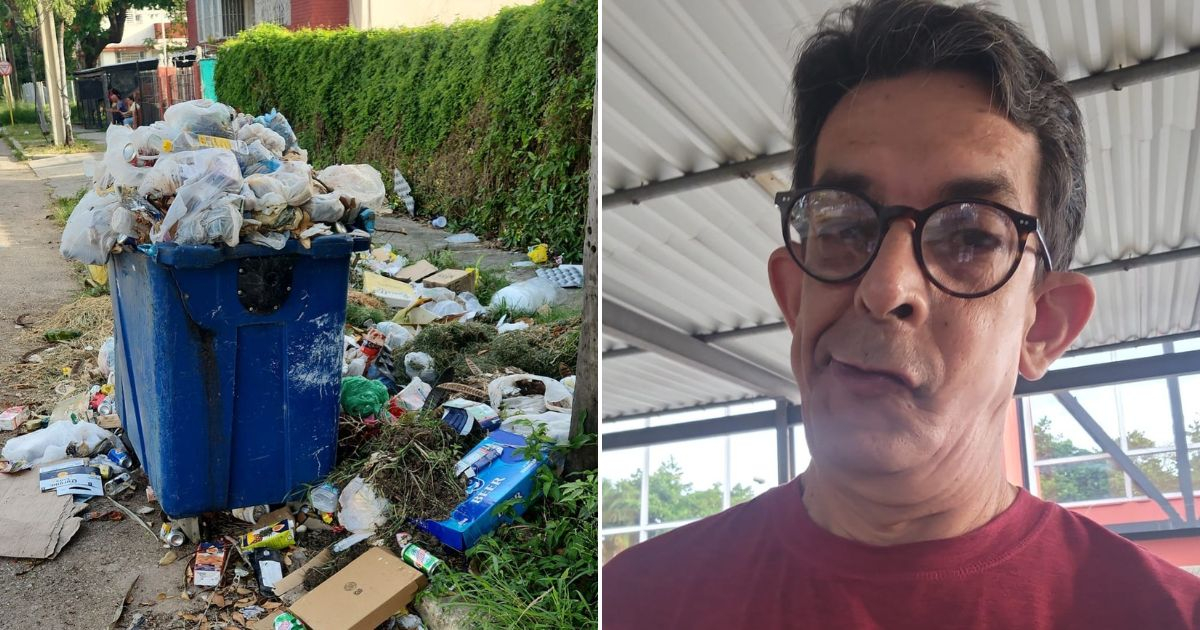
The popular Cuban comedian Ulises Toirac shared a photograph on social media this Thursday showing a completely overflowing trash container in Havana, denouncing the regime's inaction regarding solid waste collection, a common issue in several cities on the island.
“If this is Miramar...” was the brief and powerful message shared by the comedian on Facebook, pointing out that such a scene is possible in one of Havana’s privileged neighborhoods, and that anything could happen in the rest of the country.
The image shows a large accumulation of trash overflowing from the container and spreading across the street, lawns, and sidewalks, highlighting the local government's poor waste management.
Recently, the parish priest Lester Rafael Zayas Díaz reported the unsanitary conditions at the church of San Judas and San Nicolás in Centro Habana, where the community deposits garbage daily along the sidewalk and in the street, but the government does not collect the waste.
The health situation faced by this community due to the uncontrolled accumulation of garbage is alarming. In his statements, the priest emphasized the "neglect and indifference" in addressing this serious issue, describing it as a "disrespect to harmonious coexistence."
In recent days, the Cuban influencer Lina Hernández, 70 years old and known for critiquing the regime with her humorous and witty videos, bid farewell to a micro-dump that enjoyed "popular recognition" in her community: "They took it away, but along with it, the oil and sugar also disappeared."
"We all remember the enormous dump that received recognition," said Hernández on Instagram, as he displayed a smaller waste container placed in the same spot where a large micro dump once existed.
However, the issue of waste collection is recurring in several Cuban cities.
The regime's inaction made it necessary for a small and medium-sized enterprise in Guantánamo to acquire a truck for garbage collection.
The state journalist Miguel Reyes reported last Friday on Facebook that the small and medium-sized enterprise (mipyme) Transnovoa contributed a truck to the sanitation of the city of Guantánamo, presenting this initiative as an achievement of non-state economic management.
Although the publication boasts of an idea aimed at improving the city's health, it also highlights the regime's inability to manage solid waste collection. If an efficient system were in place, the involvement of a private economic actor would not be necessary.
Filed under:

